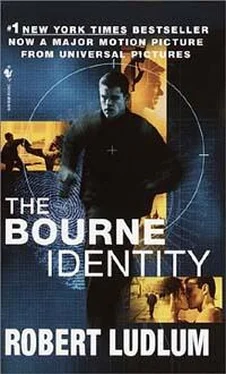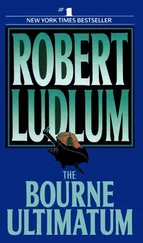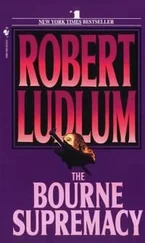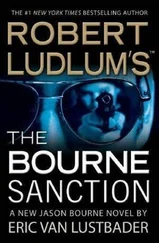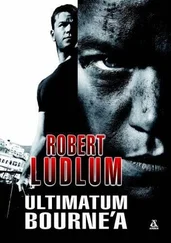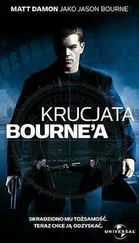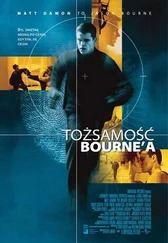It was during such moments that Jason learned the salient facts about the woman who had saved his life. He protested that she knew as much about him as he did, but he knew nothing about her.
Where had she sprung from? Why was an attractive woman with dark red hair and skin obviously nurtured on a farm somewhere pretending to be a doctor of economics?
“Because she was sick of the farm,” Marie replied.
“No kidding? A farm, really?”
“Well, a small ranch would be more like it. Small in comparison to the king-sized ones in Alberta.
In my father’s time, when a Canuck went west to buy land, there were unwritten restrictions. Don’t compete in size with your betters. He often said that if he’d used the name St. James rather than St. Jacques, he’d be a far wealthier man today.”
“He was a rancher?”
Marie had laughed. “No, he was an accountant who became a rancher by way of a Vickers bomber in the war. He was a pilot in the Royal Canadian Air Force. I guess once he saw all that sky, an accounting office seemed a little dull.”
“That takes a lot of nerve.”
“More than you know. He sold cattle he didn’t own on land he didn’t have before he bought the ranch. French to the core, people said.”
“I think I’d like him.”
“You would.”
She had lived in Calgary with her parents and two brothers until she was eighteen, when she went to McGill University in Montreal and the beginnings of a life she had never contemplated. An indifferent student who preferred racing over the fields on the back of a horse to the structured boredom of a convent school in Alberta discovered the excitement of using her mind.
“It was really as simple as that,” she told him. “I’d looked at books as natural enemies, and suddenly, here I was in a place surrounded by people who were caught up in them, having a marvelous time. Everything was talk. Talk all day, talk all night—in classrooms and seminars, in crowded booths over pitchers of beer; I think it was the talk that turned me on. Does that make sense to you?”
“I can’t remember, but I can understand,” Bourne said. “I have no memories of college or friends like that, but I’m pretty sure I was there.” He smiled. “Talking over pitchers of beer is a pretty strong impression.”
She smiled back. “And I was pretty impressive in that department. A strapping girl from Calgary with two older brothers to compete with could drink more beer than half the university boys in Montreal.”
“You must have been resented.”
“No, just envied.”
A new world had been presented to Marie St. Jacques; she never returned to her old one. Except for proscribed midterm holidays, prolonged trips to Calgary grew less and less frequent. Her circles in Montreal expanded, the summers taken up with jobs in and outside the university. She gravitated first to history, then reasoned that most of history was shaped by economic forces—power and significance had to be paid for—and so she tested the theories of economics. And was consumed.
She remained at McGill for five years, receiving her masters degree and a Canadian government fellowship to Oxford.
“That was a day, I can tell you. I thought my father would have apoplexy. He left his precious cattle to my brothers long enough to fly east to talk me out of it.”
“Talk you out of it? Why? He was an accountant; you were going after a doctorate in economics.”
“Don’t make that mistake,” Marie exclaimed. “Accountants and economists are natural enemies.
One views trees, the other forests, and the visions are usually at odds, as they, should be. Besides, my father’s not simply Canadian, he’s French-Canadian. I think he saw me as a traitor to Versailles.
But he was mollified when I told him that a condition of the fellowship was a commitment to work for the government for a minimum of three years. He said I could ‘serve the cause better from within.’ Vive Québec libre—vive la France!”
They both laughed.
The three-year commitment to Ottawa was extended for all the logical reasons: whenever she thought of leaving, she was promoted a grade, given a large office and an expanded staff.
“Power corrupts, of course”—she smiled—“and no one knows it better than a ranking bureaucrat whom banks and corporations pursue for a recommendation. But I think Napoleon said it better. ‘Give me enough medals and I’ll win you any war.’ So I stayed. I enjoy my work immensely. But then it’s work I’m good at and that helps.”
Jason watched her as she talked. Beneath the controlled exterior there was an exuberant, childlike quality about her. She was an enthusiast, reining in her enthusiasm whenever she felt it becoming too pronounced. Of course she was good at what she did; he suspected she never did anything with less than her fullest application. “I’m sure you are—good, I mean—but it doesn’t leave much time for other things, does it?”
“What other things?”
“Oh, the usual. Husband, family, house with the picket fence.”
“They may come one day; I don’t rule them out.”
“But they haven’t.”
“No. There were a couple of close calls, but no brass ring. Or diamond, either.”
“Who’s Peter?”
The smile faded. “I’d forgotten. You read the cable.”
“I’m sorry.”
“Don’t be. We’ve covered that… Peter? I adore Peter. We lived together for nearly two years, but it didn’t work out.”
“Apparently he doesn’t hold any grudges.”
“He’d better not!” She laughed again. “He’s director of the section, hopes for a cabinet appointment soon. If he doesn’t behave himself, I’ll tell the Treasury Board what he doesn’t know and he’ll be back as an SX-Two”
“He said he was going to pick you up at the airport on the twenty-sixth. You’d better cable him.”
“Yes, I know.”
Her leaving was what they had not talked about; they had avoided the subject as though it were a distant eventuality. It was not related to what-had-happened; it was something that was going to be.
Marie had said she wanted to help him; he had accepted, assuming she was driven by false gratitude into staying with him for a day or so—and he was grateful for that. But anything else was unthinkable.
Which was why they did not talk about it. Words and looks had passed between them, quiet laughter evoked, comfort established. At odd moments there were tentative rushes of warmth and they both understood and backed away. Anything else was unthinkable.
So they kept returning to the abnormality, to what-had-happened. To him more than to them, for he was the irrational reason for their being together … together in a room at a small village inn in Switzerland. Abnormality. It was not part of the reasonable, ordered world of Marie St. Jacques, and because it was not, her orderly, analytical mind was provoked. Unreasonable things were to be examined, unraveled, explained. She became relentless in her probing, as insistent as Geoffrey Washburn had been on the Ile de Port Noir, but without the doctor’s patience. For she did not have the time; she knew it and it drove her to the edges of stridency.
“When you read the newspapers, what strikes you?”
“The mess. Seems it’s universal.”
“Be serious. What’s familiar to you?”
“Most everything, but I can’t tell you why.”
“Give me an example.”
“This morning. There was a story about an American arms shipment to Greece and the subsequent debate in the United Nations; the Soviets protested. I understand the significance, the Mediterranean power struggle, the Mid East spillover.”
“Give me another.”
“There was an article about East German interference with the Bonn government’s liaison office in Warsaw. Eastern bloc, Western bloc; again I understood.”
Читать дальше
